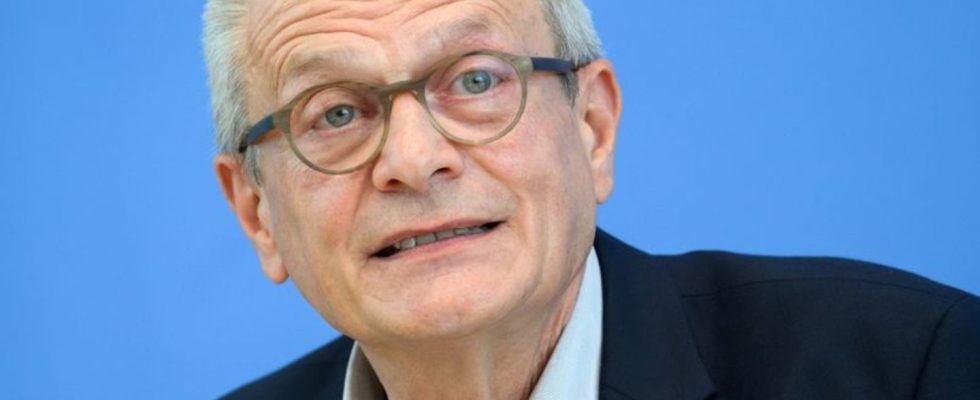Company
Diakonie: 20 billion euros for basic child security
Ulrich Lilie, President of Diakonie Germany, focuses on the medium and long-term burdens in the discussion about basic child security. photo
© Bernd von Jutrczenka/dpa
Minister Paus wants to get children out of poverty with basic child security. In the medium and long term, this would even relieve the state considerably, the Institute for Economic Research calculates.
Fighting child poverty is a mammoth task – and it takes a lot of money. Probably more money than the two billion euros that Finance Minister Christian Lindner (FDP) for the introduction of wants to spend basic child security. According to a study, child poverty has a high price for the state and society.
Accordingly, children affected by poverty have a higher risk of developing health problems and becoming unable to work than children from economically strong families. “The direct and indirect costs associated with obesity alone, the risk of which increases with child poverty, amounted to more than 60 billion euros a year in 2016,” the German Institute for Economic Research (DIW) investigated on behalf of Diakonie. In the long term, child poverty thus means higher public spending on health care and higher payments in the social security systems.
“In the discussion about basic child security, not only the short-term austerity measures in the federal budget should play a role,” said Diakonie President Ulrich Lilie at the presentation of the report on Friday. “We also need to talk about the medium- and long-term burdens on government and taxpayers that will inevitably result from not investing in all children at an early age.” After all, healthy and well-educated children have significantly better chances of building an independent life with higher incomes and less dependence on state aid.
So how much money does it take?
With the basic child security, Family Minister Lisa Paus (Greens) wants to combine benefits for families and increase them at the same time. The FDP is critical of performance improvements. Finance Minister Christian Lindner told the “FAZ”: “A family of five who receive citizen income currently receives an estimated 36,000 to 38,000 euros a year from the taxpayer.” It doesn’t help much to pay them high additional transfers, be it 1,000 or even 3,000 euros a year.
How much the basic child security will now cost remains a controversial issue. For the year 2025, when it is supposed to start, only two billion euros are currently earmarked. However, Paus initially demanded 12 billion per year and most recently assumed a maximum of seven billion euros in annual costs for basic child security.
None of the sums are sufficient for the Diakonie: According to them, at least 20 billion euros would be necessary. “That’s a fraction of the sum that the state and taxpayers have to shoulder today if child poverty isn’t fought more energetically, but instead the enormous follow-up costs are accepted,” said Diakonie President Lilie.
Fratscher: Only two billion euros would be a mistake
The President of the German Institute for Economic Research (DIW Berlin), Marcel Fratzscher, is also pushing for the rapid introduction of basic child security. “I am very concerned that basic child security could fail for cost reasons,” said Fratzscher. “It would be a mistake to reduce spending on basic child security to two billion euros, as is currently planned in the federal budget.” The best investment a country can make is in its people.
According to data from the Federal Statistical Office, almost every fourth child is currently affected by poverty or social exclusion. Before inflation started, it was about every fifth child. Children of single parents are particularly affected: in 2022, 25.5 percent of single parent households were at risk of poverty. In the case of two adults with one child, on the other hand, it was 8.6 percent.
And according to the study, this also means high follow-up costs in the field of education: The often poorer access to educational opportunities for children affected by poverty leads to lower educational qualifications and limited career prospects. This in turn increases the risk of unemployment and means long-term social costs in the form of a lack of tax and social security contributions and additional transfer payments. “These costs amount to 1.5 billion euros a year for people from a year with insufficient education alone,” it continues.

